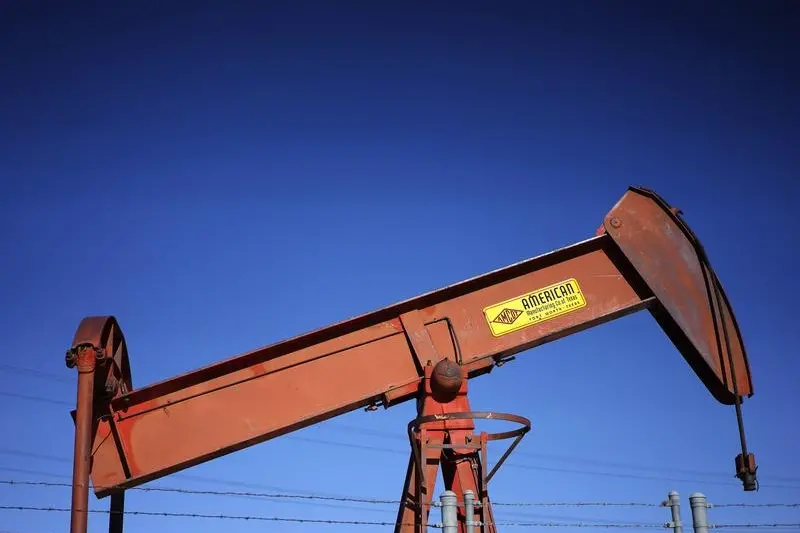PHOTO
- Oil prices rose on Wednesday on concerns over supply disruptions in Venezuela
- Asian shares steady as investors await the outcome of the Fed’s meeting
- Most markets in the Middle East retreated on Tuesday
- Dollar weakens, gold prices rise
Oil prices
Oil prices rose again on Wednesday as the United States imposed sanctions on Venezuelan state-owned oil firm PDVSA, curbing its exports to the U.S. The gains followed a 2 percent price jump in the previous session.
U.S. West Texas Intermediate (WTI) crude futures were at $53.43 per barrel at 0333 GMT, 12 cents, or 0.2 percent, above their last settlement.
International Brent crude oil futures rose 17 cents, or 0.3 percent, to $61.49 per barrel.
“The sanctions so far have been mostly disruptive for refiners on the U.S. Gulf Coast, who are being forced to seek alternative heavy crude supplies, and have stepped up purchases from Canada,” Vandana Hari of Vanda Insights, an energy consultancy, told Reuters.
She added, however, that Canadian oil exports would be “constrained by pipeline capacity bottlenecks.
Global markets
Asian equities steadied on Wednesday as investors were awaiting for the result of the Federal Reserve’s rates review later in the day and the outcome of high level trade talks between the United States and China.
MSCI’s broadest index of Asia-Pacific shares outside Japan was little changed. Japan’s Nikkei was an outlier, dropping 0.5 percent.
U.S. Treasury Secretary Steve Mnuchin said on Tuesday he expected to see significant progress in talks with Chinese officials and that U.S. charges against telecommunications giant Huawei Technologies Co Ltd were a separate issue, according to a Reuters report.
“It seems December was the worst month and since then things might be starting to recover a bit. If we can see more such evidence, market sentiment will be bolstered,” Nobuhiko Kuramochi, chief strategist at Mizuho Securities, told Reuters.
“Yet, it’s still not clear how strong any such recovery would be. I would bet markets will be range-bound from here,” he said.
Middle East markets
Saudi Arabia’s index dropped 0.5 percent on Tuesday with Al Rajhi Bank dropping 0.8 percent and Samba Financial Group shedding 1.6 percent.
The Dubai index edged down 0.2 percent, pulled by its banking shares. Mashreq Bank plunged 10 percent, while Commercial Bank of Dubai slumped 7.5 percent.
Abu Dhabi's index dropped 0.4 percent, with First Abu Dhabi Bank falling 0.8 percent and Abu Dhabi's National Energy Company (TAQA) slipping 6.8 percent.
The Qatari index edged up 0.2 percent, helped by a 3.6 percent rise in Qatar Fuel and a 3.2 percent increase in Qatar Gas Transport Co.
The Egyptian blue-chip index EGX30 was up 0.5 percent, helped by a 9.9 percent jump in Global Telecom Holding.
Kuwait’s premier market index added 0.4 percent, Bahrain’s index gained 0.5 percent and Oman’s index gained 0.3 percent.
Currencies
The dollar eased ahead of the Fed meeting.
The dollar index, which measures the greenback against a basket of six major currencies, dipped 0.1 percent to 95.732.
Precious metals
Gold prices rose on Wednesday as the dollar weakened.
Spot gold was up 0.2 percent at $1,313.91 per ounce by 0245 GMT, after touching its highest since May 15 at $1,314.10 early in the session.
U.S. gold futures rose 0.3 percent to $1,312.30 per ounce.
(Reporting by Gerard Aoun; Editing by Mily Chakrabarty)
(gerard.aoun@refinitiv.com)
Our Standards: The Thomson Reuters Trust Principles
Disclaimer: This article is provided for informational purposes only. The content does not provide tax, legal or investment advice or opinion regarding the suitability, value or profitability of any particular security, portfolio or investment strategy. Read our full disclaimer policy here.
© ZAWYA 2019




















